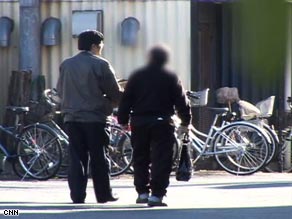Wall Street heads into another turbulent week with investors set to
pore over a government report on retail sales and earnings from
Wal-Mart Stores Inc. to get a better reading on the consumer.
There
are growing signs that the deepening economic slowdown has caused
Americans to tighten their purse strings. There was fresh evidence of
this past week when retailers posted the worst October same-store sales
in 35 years -- and analysts believe the upcoming holiday shopping
season could be among the slowest in decades.
With consumer
spending driving more than two-thirds of the U.S. economy, investors
will be paying close attention to earnings outlooks for some of the
nation's biggest retailers. Wal-Mart, the nation's biggest retail
chain, will post results on Thursday. Kohl's Corp., JCPenney Co.,
Macy's Inc., and Abercrombie & Fitch Co. are scheduled to release
reports as well.
Investors will get an overall picture of
consumer spending on Friday when the Commerce Department releases its
October retail sales index. The closely watched gauge is expected to
show sales dropping 1.2 percent for the month after falling 1.2 percent
in September. Excluding the battered automobile industry, sales are
expected to have fallen 0.9 percent.
The market, still
trying to recover from October's devastating losses, will likely zigzag
as investors react to these reports. This has been the pattern during
the past few weeks, with major indexes swinging from one extreme to
another in capricious trading.
Many analysts believe this
volatility is part of a bottoming-out process. The real test is to see
in the coming days if investors have already priced in the potential
for negative news or if fear of a protracted recession will trigger
another stream of selling.
"The news is going to be really
bad, and that shouldn't be a surprise to investors," said Peter Cohan,
principal of Peter S. Cohan & Associates. "But, I'm feeling
uncomfortable that the market is a daily mood ring for the economy. The
small investors are largely out of the market, and what you end up with
is a small number of very large players making decisions."
Cohan
pins the volatility on hedge funds, pension funds, and big university
endowments unloading stocks to raise collateral and scooping up
undervalued stocks to seize opportunity. He believes this will
eventually result in a more stable trading environment that will lure
retail investors back, and add stability to major indexes.
Hedge
funds could come to center stage this week if they receive another wave
of redemption requests from investors. The upcoming Nov. 15 deadline
for redemptions could cause further instability in the market, Cohan
said.
Wall Street had enjoyed its biggest Election Day rally
in history last Tuesday, but could not cling to those gains. This was
followed by a two-day loss of about 10 percent in the major indexes,
including a 929-point drop in the Dow, as investors turned their focus
once more to the economy's woes.
For the week, the Dow Jones
industrial average and broader benchmarks such as the Standard &
Poor's 500 index lost about 4 percent after surging 10 percent or more
the week before. Technical analysts are keeping a close eye on all the
data this week, with continued concerns that the Dow will test its Oct.
10 intraday low of 7,882.51.
Stock futures trading early
Sunday evening showed a slightly positive start for the markets.
S&P 500 futures gained 0.83 percent, while Nasdaq 100 futures rose
0.66 percent.
There are a number of other reports on tap
that might give more insight into the economy. On Thursday, Wall Street
gets readings on the labor market and trade deficit, followed by a look
at consumer sentiment on Friday. Trading on Tuesday could be more
subdued with the bond market and some banks closed due to Veterans Day.
Additionally,
investors are watching for developments with General Motors Corp.,
Chrysler and Ford Motor Co. after the automakers met with Congressional
leaders last week to secure financial help.
Democratic
leaders in Congress asked the Bush administration on Saturday to
provide more aid to the struggling auto industry, which is bleeding
cash and jobs as sales have dropped to their lowest level in a
quarter-century. House Speaker Nancy Pelosi and Senate Majority Leader
Harry Reid said in a letter to Treasury Secretary Henry Paulson that
the administration should consider expanding the $700 billion bailout
to include car companies.
"We must safeguard the interests
of American taxpayers, protect the hundreds of thousands of automobile
workers and retirees, stop the erosion of our manufacturing base, and
bolster our economy," Pelosi, D-Calif., and Reid, D-Nev., wrote.
Even
more news might be generated out of Washington with the possible
selection of a new Treasury secretary by President-elect Barack Obama.
He has already identified that the economy is the new administration's
biggest priority, and a Treasury pick could lift stocks.
Among
those being considered for the post include former Treasury Secretary
Lawrence Summers, Federal Reserve Bank of New York President Timothy
Geithner, and former Federal Reserve Chairman Paul Volcker.



